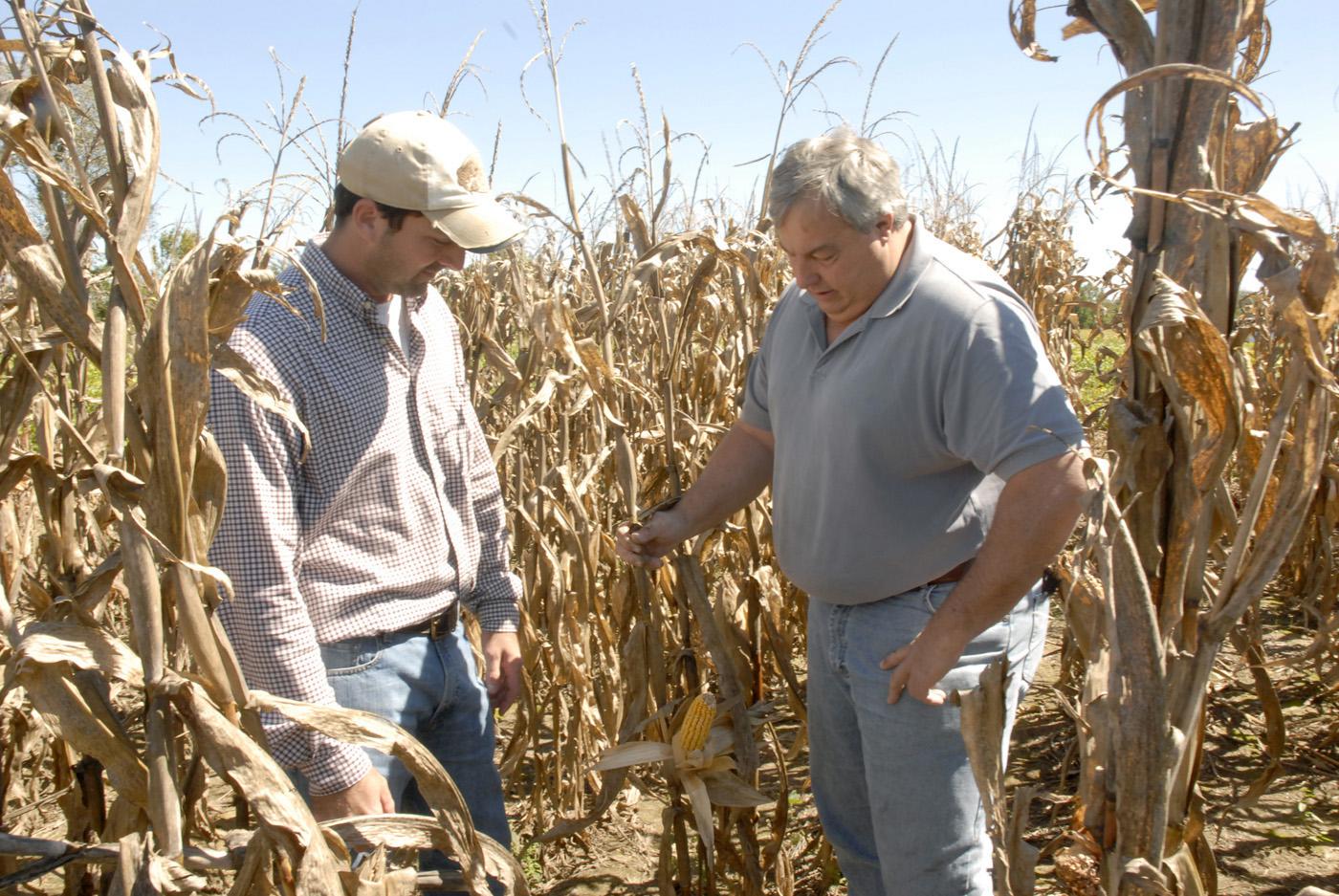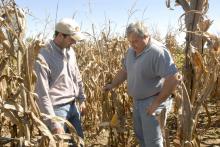Information Possibly Outdated
The information presented on this page was originally released on November 19, 2009. It may not be outdated, but please search our site for more current information. If you plan to quote or reference this information in a publication, please check with the Extension specialist or author before proceeding.
Variety trials provide unbiased information
MISSISSIPPI STATE -- Crop variety trials offer Mississippi growers insight into a new seed’s potential before they “bet the farm” on these options.
Farming has many factors that are beyond growers’ control including the weather, production costs and market prices. But a decades-old research service offered by the Mississippi Agricultural and Forestry Experiment Station aims to remove some of the unknowns as growers select varieties for the next year’s crop.
Mississippi State University variety testing operations manager Brad Burgess said MAFES conducts trials for the state’s major agronomic crops including corn, cotton, oats, rice, ryegrass, soybeans and wheat. Yield, height, lodging, stand counts and ear height are some of the data gathered in the trials.
University crop specialists, Extension Service agents and industry representatives make up the technical advisory committees for each crop. They oversee site selection and other trial decisions. Seed companies pay fees to enter their seed in the trials.
“We want to give growers the best idea of a seed’s potential in a wide variety of conditions,” Burgess said. “Trials are scattered across the state on different soil types, in irrigated and non-irrigated locations, and where different environmental conditions will be a factor.”
Burgess said MAFES workers keep detailed records so growers will know soil and weather conditions, specifics on chemical treatments, and dates of planting, growth stages and harvest.
“Growers need an unbiased source for seed evaluations,” Burgess said. “We try to focus on the crops and areas of highest interest. We also work closely with our statistician to ensure the interpretation of the research is sound.”
Burgess said farmer interest in the trials increases each year.
Jimmy Sneed, a grower in the Hernando area for more than three decades, described MAFES trials as not just unbiased, but also as “reliable, dependable and statistically sound.”
A member of the Mississippi Soybean Promotion Board, Sneed said he uses the MAFES trails as the baseline in making variety selections.
“Growers can take that data and compare it to seed company information and then make planting decisions,” Sneed said. “I want to be able to see how a variety has performed over two or three years. At the end of the day, the bottom line is yield potential and consistency.”
Sneed relies on many of the details in the trials to know what effort went into producing the reported yields. High input may produce strong yields, but they may not be cost effective.
“We don’t farm to make a crop; we farm to make money,” Sneed said. “That begins with selecting the right varieties.”
Tim Walker, associate research professor for rice, said growers are eager to see trial results each fall before making seed selections for the next growing season.
“We grow the trials with the same best management practices a grower would use,” he said.
In recent years, researchers harvested rice plots by hand, but they now have a small combine that is able to collect the data as it harvests each plot. In addition to yield, rice researchers test for moisture and milling quality.
“Within two weeks of harvest, we can be ready to print all our data,” Walker said. “Every year, growers seem to want more information, and they want it quicker. Technology is helping us deliver it.”
MAFES works with MSU’s Office of Agricultural Communications to compile the variety trials into almost 4,000 printed bulletins and to post results on the university’s Web site.
Grower Travis Satterfield of Benoit said he often sees the results online first, but he likes to have the printed material in his hands. He watches the trial results for soybean, rice and corn varieties.
“I’m always looking for something with good yield potential, then disease resistance, no lodging problems and so on,” he said. “I like to look at results from different locations.”
MSU associate professor Ted Wallace said Mississippi’s cotton trials are in five Delta locations and four hill section locations. Check varieties, or those with proven track records, are planted at those locations, too.
Cotton trials consist of three categories: the New Variety Test, which is for varieties that have not been tested but are scheduled for commercial release within one year; the Official Variety Test, the standard university cotton variety trial; and the Commercial Advanced Strains Test, untested varieties that are not scheduled for commercial release. CAST varieties are only planted in plots in Stoneville.
Jimmy Ray Parish manages the forage variety trials for alfalfa, bahaigrass, bermudagrass, tall fescue, annual ryegrass and switchgrass. Forages are tested for yield and persistence of perennials in Mississippi.
“Some varieties might perform well in South America but not here,” Parish said. “We also have trials that have cattle on them to see how well the grasses hold up under grazing pressure. We are the only university in the United States that conducts forage trials with cattle.”
MAFES variety trials are available online at http://www.mafes.msstate.edu/variety-trials/.
Growers can view results online from 1994 to the most recent results. Printed bulletins are available at county Extension Service offices.






